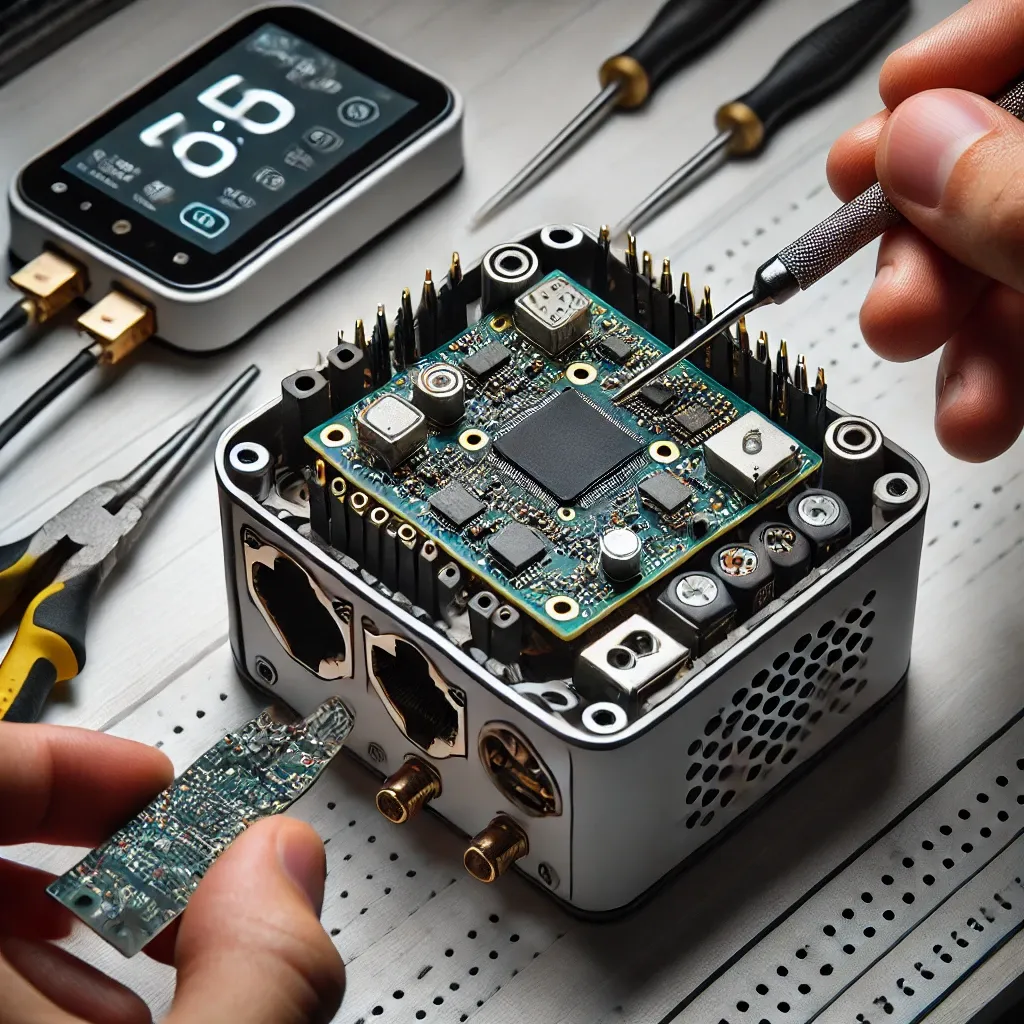If you’re an IoT device manufacturer, you know that navigating regulatory approvals is essential to getting your products to market quickly and efficiently. One powerful tool at your disposal is FCC modular approval. This certification allows you to reuse pre-approved RF modules across multiple devices without having to go through the approval process each time. Let’s dive into how this works, what you need to do, and why it might be a great option for your products.
What Is FCC Modular Approval?
Simply put, modular approval is a way to streamline the certification process for RF transmitter modules. Rather than having to get each product with an RF module certified individually, the FCC lets you certify the module itself. This means you can integrate the module into different devices without needing new approval every time.
It saves time, reduces costs, and helps you get your products to market faster. That said, it’s not required for all devices, so you’ll want to carefully evaluate whether it’s the right fit for your business and products.
7 Key Conditions for FCC Modular Approval
To obtain FCC modular approval, your RF module needs to meet several important criteria. Here’s what the FCC expects:
1. RF Shielding
Your module must be shielded to prevent interference with other electronics in the host device. This ensures it works smoothly without disrupting other components nearby.
2. Buffered Modulation/Data Inputs
The module’s modulation and data inputs should be buffered. In simple terms, this means that even if the host device has variations, it won’t affect the module’s emissions. Keeping emissions stable ensures the module remains compliant with FCC regulations.
3. Power Supply Regulation
The module needs to manage its own power. This helps it perform consistently across different devices, even when those devices have varying power supply conditions.
4. Antenna Requirements
There are rules about the antenna, too. Your module must either have a permanently attached antenna or a unique connector that complies with FCC standards. This ensures that users can’t replace the antenna with something that might cause the device to exceed allowed emission limits.
5. Stand-Alone Testing
The FCC requires that your module be tested and compliant as a stand-alone product. This means it must pass compliance checks on its own, not just when integrated into a device.
6. Labeling
Your module must have a permanent FCC ID label, or be capable of displaying this information electronically. It’s essential for ensuring the module’s certification can be verified easily.
7. FCC Rules Compliance
Lastly, the module must comply with all relevant FCC rules, including RF exposure limits. This is especially important for devices like wearables, which are often used close to the body.
Limited Modular Approval (LMA) vs. Full Modular Approval
If your module can’t meet all the criteria for full modular approval, you might still be able to pursue Limited Modular Approval (LMA). This provides some flexibility, but it does require extra steps. For example, you might need special guidance from the FCC or additional testing on how the module interacts with its host device.
While LMA allows you to use the module in more specific cases, it can also increase the complexity of your compliance efforts. Each host device may need additional testing and documentation to stay compliant, which can become a costly process over time.
Cost Considerations for Modular Approval
Is modular approval worth it for your business? That depends on the scale of your operation.
For larger IoT projects or businesses launching multiple products, the cost savings can be significant. Once your RF module is approved, it can be integrated into many devices without needing to repeat the certification process. This is ideal for companies with product lines that feature multiple versions or models of similar devices.
On the other hand, for smaller businesses or companies with fewer products, the upfront costs of modular approval might not be as easily justified. It may be more cost-effective to seek certification on a case-by-case basis if you’re only developing a small number of products.
For projects requiring Limited Modular Approval (LMA), keep in mind that the costs could increase due to the need for additional testing or documentation, especially for each unique host device.
Modular Approval in the European Market
While the focus here is on FCC modular approval, if you’re selling in Europe, you’ll need to look into compliance with the Radio Equipment Directive (RED). The approval process in Europe differs from the one in the U.S., so it’s important to understand the distinctions if you’re targeting a global market.
We’ve covered these differences in detail in our blog post about RF Module Integration in Europe. You can find it here, where we discuss how European regulations compare with those of the FCC and what steps you’ll need to take to ensure compliance on both sides of the Atlantic.
Why Choose Modular Approval for IoT Devices?
So, why should IoT manufacturers opt for modular approval? Here are the biggest advantages:
1. Cost Savings
One certification for the module means you don’t need to go through the process every time you integrate it into a new device. This saves both money and effort, especially for companies developing multiple products.
2. Faster Time-to-Market
With your RF module already certified, you can integrate it into new products without delay. This cuts down on time spent waiting for approvals and allows you to launch products much faster.
3. Simplified Compliance
The beauty of modular approval is that you maintain compliance with FCC regulations across all devices using the module. No need for repetitive testing, so your administrative burden is lighter.
4. Flexibility
For manufacturers creating multiple products, modular approval offers the flexibility to incorporate the same RF module into different devices without needing individual certifications. This is a major advantage when scaling production or expanding your product line.
How IoT Consulting Partners Can Help
Getting FCC modular approval can seem daunting, especially if you’re unsure about the process or the requirements. That’s where IoT Consulting Partners comes in. We specialize in helping businesses navigate the complexities of RF compliance and modular approvals.
Here’s how we can assist you:
- Documentation Preparation: We’ll help you gather and prepare all the necessary documents to meet FCC requirements.
- Testing Management: We’ll guide you through the testing process to ensure your module complies with FCC standards.
- Global Compliance: Planning to sell internationally? We can help you navigate the European market’s Radio Equipment Directive (RED) compliance, making sure your products meet the regulations worldwide.
Our goal is to make the process as smooth as possible so you can focus on what you do best—innovating and growing your business.
Final Thoughts
Choosing FCC modular approval can be a smart move for IoT manufacturers looking to reduce costs, speed up product launches, and simplify compliance across multiple devices. However, it’s important to evaluate whether modular approval or Limited Modular Approval (LMA) fits your product’s specific needs.
At IoT Consulting Partners, we’re here to support you through the entire approval process. Whether you’re focused on the U.S. market or expanding into Europe (or the whole globe), our team can help you navigate the complexities of RF compliance and get your products to market quickly and efficiently.
For more information on European compliance, don’t forget to read our blog on RF Module Integration in Europe.


